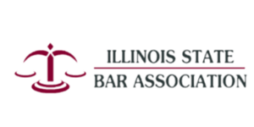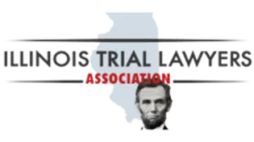What Closing Costs Will I Need to Pay When Buying or Selling a Home?
Date: 06/14/2022
Author: Prime Law Group

The pandemic turned the real estate market upside down; many people made a good profit by selling their homes at the right time.
Are you looking to sell your home? Or perhaps you are buying a home and are concerned about the closing costs.
Closing costs are one of the many expenses that come with buying or selling a home. It’s important to know what to expect so you can plan accordingly.
Here is a breakdown of Illinois’s most common closing costs associated with residential real estate transactions.
Ready to learn about the closing costs when buying a home or selling? Stay tuned!
What Are Closing Costs and What Do They Include?
Closing costs are the fees and expenses associated with buying or selling a home. They can vary depending on the transaction type but typically include title insurance, escrow fees, loan origination fees, appraisal fees, and more.
In Illinois, the buyer is typically responsible for paying most of the closing costs associated with purchasing a home. However, the seller may be responsible for some costs as well, such as the real estate transfer tax.
How Much Will You Need To Pay in Closing Costs When Buying a Home?
The amount you’ll need to pay in closing costs when buying a home will depend on several factors, including the price of the home, the type of loan you’re using, and the lender you’re working with.
For example, if you’re buying a $200,000 home and taking out a conventional loan with a 20% down payment, your closing costs could be around $4000. However, if you’re taking out an FHA loan with a smaller down payment, your closing costs could be closer to $6000.
When selling a home, the seller is typically responsible for paying the real estate agent’s commission, as well as any transfer taxes that may be due. The buyer’s closing costs will also include the cost of title insurance and any loan origination fees.
How Much Will You Need To Pay in Closing Costs When Selling a Home?
When selling a home, you’ll need to pay the real estate agent’s commission, as well as any transfer taxes that may be due. You may also be responsible for paying some of the buyer’s closing costs, such as the cost of title insurance. The total amount you’ll need to pay in closing costs will depend on the factors mentioned above, as well as the final sales price of the home.
If you’re buying or selling a home in Illinois, it’s important to be aware of the closing costs associated with the transaction. By knowing what to expect, you can plan accordingly and avoid any surprises down the road.
Are There Any Ways To Reduce or Avoid Paying Closing Costs Altogether?
Yes, there are a few ways you can reduce or avoid paying closing costs altogether. For example, you may be able to negotiate with your real estate agent to lower their commission. Additionally, some lenders offer programs that can help you with your closing costs.
If you’re selling a home, you may also be able to increase the price of the home to cover some of the closing costs. However, this will likely result in a lower sales price and may not be an option if you’re already at or near your asking price.
In conclusion, it’s important to be aware of the closing costs associated with buying or selling a home in Illinois. By knowing what to expect, you can plan accordingly and avoid any surprises down the road.
What Happens if the Buyer or Seller Can't Afford To Pay the Closing Costs?

If the buyer or seller is unable to pay the closing costs, there are a few options. The first option is for the buyer and seller to negotiate who will pay which closing costs. Another option is for the buyer to take out a loan to cover the closing costs.
And lastly, the seller can increase the price of the home to cover the closing costs. If you’re buying or selling a home in Illinois, it’s important to be aware of the closing costs associated with the transaction.
By knowing what to expect, you can plan accordingly and avoid any surprises down the road.
When Do You Have To Pay Closing Costs - Before or After the Home Purchase?
Closing costs are typically paid at the closing of the sale, which is when the final paperwork is signed, and the property changes hands. However, there are a few instances where closing costs may be paid before or after the sale.
For example, if you’re taking out a loan to cover the closing costs, you’ll likely pay them upfront. Additionally, if you’re selling a home, you may be responsible for paying some of the buyer’s closing costs. The total amount you’ll need to pay in closing costs will depend on the factors mentioned above, as well as the final sales price of the home.
Factors That Affect the Closing Costs of a Home Sale
There are a few factors that can affect the number of closing costs you’ll need to pay. Let’s take an in-depth look at those factors.
Price of House
The final sales price of the home will play a role in how much you’ll need to pay in closing costs. Generally speaking, the higher the price of the home, the higher the closing costs will be.
Location of House
The location of the house can also affect your closing costs. If you’re buying or selling a home in Illinois, you’ll need to pay transfer taxes. These taxes vary by county, so the amount you’ll need to pay will depend on the location of the property.
Type of House

The type of house can also have an impact on your closing costs. For example, if you’re buying a condo, you may be responsible for paying HOA fees. These fees can add up, so it’s important to be aware of them before making an offer on a property.
Loan Amount
The amount of your loan can also affect your closing costs. For example, if you’re taking out a mortgage to cover the cost of the home, you’ll need to pay for things like appraisal fees and loan origination fees.
These are just a few of the factors that can affect your closing costs. By being aware of these factors, you can better estimate the total amount you’ll need to pay when buying or selling a home.
Property Taxes
In addition to the closing costs, you’ll also need to pay property taxes. Property taxes are paid annually and are based on the value of the property. The amount you’ll need to pay will vary depending on the location of the property and the assessed value of the home.
Lawyer Fees
If you’re buying or selling a home, you may need to hire a lawyer to handle the transaction. Lawyers typically charge by the hour, so the amount you’ll need to pay will depend on how much time they spend working on your case.
Bank Fees
If you’re taking out a mortgage to finance the purchase of your home, you’ll need to pay bank fees. These fees can include things like appraisal fees, loan origination fees, and closing costs.
Realtor Commission
If you’re working with a real estate agent, you’ll need to pay their commission. Realtor commissions are typically paid at the close of the sale and are based on a percentage of the final sales price.
If there are two agents involved, they will split the cost of the commission. For example, if the selling agent charges a commission of six percent and another agent represents the buyer, they will split that 6%. It does not accumulate.
Hiring a Lawyer: How We Can Help Lower Your Closing Costs
If you’re buying or selling a home in Illinois, it’s important to be aware of the closing costs associated with the transaction. By knowing what to expect, you can plan accordingly and avoid any surprises down the road.
At Prime Law Group, we have a team of experienced lawyers who can help you understand the closing process and negotiate with the other party to try to lower your closing costs.
Closing Costs When Selling or Buying a Home: Be Prepared
It’s important to be aware of all the potential costs associated with buying or selling a home so that you can plan accordingly and avoid any surprises down the road.
At Prime Law Group, we have a team of experienced lawyers who can help you understand the closing process and negotiate with the other party to try to lower your closing costs. Contact us today!






